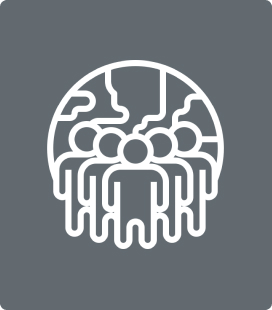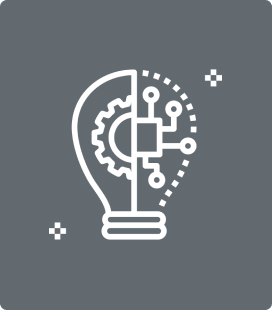Proyectos de clase
Esta sección del portal web es una comunidad de intercambio de proyectos y webquest creados por otros educadores. Los profesores pueden explorar una amplia variedad de proyectos motivadores y actividades en línea, así como compartir sus propios proyectos y webquest con la comunidad. Es una fuente inagotable de inspiración y apoyo para mejorar la enseñanza con proyectos y webquest enfocados en el aprendizaje activo y colaborativo.
Crea tu proyectoProyectos de clase y webquest
Total (13359)
Recientes

Jose Gonzalez Villescusa - Jul 18, 2024
Innovación Y Creatividad En La Educación Secundaria Obligatoria (Eso)"
proyecto de arte: "expresión artística en secundaria" objetivo: el objetivo principal de este proyecto es fomentar la creatividad, la expresión personal y el desarrollo de habilidades artísticas entre los estudiantes de secundaria. a través de diversas actividades y talleres, se busca proporcionar a los alumnos las herramientas y el espacio necesarios para ...

Erica Castro - Jun 17, 2024
Relevancia Y Planteamiento De Un Problema De Investigación A Través De Un Póster Científico.
como se ha analizado hasta ahora en la asignatura de metodología de la investigación, la definición del tema a investigar y su sustento teórico, es la primera instancia de la metodología de la investigación científica y pilar fundamental para construir los pasos subsiguientes del protocolo de investigación. por tanto, una buena formulación del problema implica necesariamente ...

Jessica Paola Gómez Sánchez - May 15, 2024
"El Cambio Climático: Causas, Consecuencias Y Soluciones"
bienvenidos a la webquest sobre el cambio climático. esta actividad les permitirá explorar uno de los problemas más urgentes y desafiantes que enfrenta nuestra sociedad en la actualidad. el cambio climático no solo afecta al medio ambiente, sino también a la economía, la salud y la vida cotidiana de millones ...

Catarina Lucrecia Guachaj Guarchaj - May 14, 2024
Inteligencia Artificial En La Educación Superior
la inteligencia artificial (ia) ha emergido como una de las tecnologías más transformadoras en diversos sectores y la educación superior no es una excepción. en las últimas décadas, las instituciones educativas han comenzado a integrar soluciones basadas en ia para mejorar la calidad y accesibilidad de la educación, optimizando procesos ...

Daysi Wendy Miranda Miranda - May 13, 2024
Inteligencia Artificial En La Educación Superior
la siguiente webquest encontrarás información sobre la temática inteligencia artificial en la educación superior e información sobre esta plataforma digital denominada eduteka, la inteligencia artificial en la educación superior ha sido una gran herramienta para la enseñzana y el aprendizaje, aquí te mencionaré que es la ia y su influencia ...

Christa Madelaine Del Carmen Trujillo Mu�?oz - May 13, 2024
Inteligencia Artificial En La Educación Superior
bienvenidos al webquest "inteligencia artificial en la educación superior". en este emocionante viaje de descubrimiento, exploraremos cómo la inteligencia artificial está transformando el panorama educativo en las instituciones de educación superior. desde la personalización del aprendizaje hasta la automatización de tareas administrativas, la inteligencia artificial está revolucionando la forma en ...

Hector Manuel Mayen Zamora - May 12, 2024
Inteligencia Artificial En La Educación Superior
la inteligencia artificial (ia) ha surgido como una poderosa herramienta en diversas industrias, y la educación superior no es una excepción. en un mundo cada vez más digitalizado, la ia tiene el potencial de transformar la forma en que aprendemos y enseñamos en las instituciones educativas superiores. esta webquest explora ...

Lily Maria Victoria Garnica Salguero - May 11, 2024
Inteligencia Artificial En La Educación Superior
el estudiante al finalizar el curso, deberá tener un repertorio de herramientas digitales, así como el conocimiento para hacer uso de las mismas. también, aprenderá a obtener nuevos conocimientos haciendo uso de la tecnología para dichos objetivos. otra de las capacidades que deberá tener el estudiante al finalizar el curso, es impartir ...

Yesica Lucia Ordoñez Cruz - May 11, 2024
Medios De Comunicacion
los medios de comunicación, anteriormente no estaban muy actualizados, como hoy en día, en nuestra sociedad. actualmente en pleno siglo xxi, han venido surgiendo temas muy necesarios e innovadores, que de una u otra manera nos brindan o nos trasmite una información pertinente para la vida del ser humano. además, los ...

Zuny Andrea Cruz Barrios - May 08, 2024
Inteligencia Artificial En La Educación Superior
la ia en la educación superior se ha convertido en un principal apoyo, ya que las personas, optimizando tiempos, despertando la creatividad, desarrollando nuevos conocimientos y aportes al aprendizaje, existen programas que pueden diagnosticar enfermedades, resolver ecuaciones diferenciales en forma simbólica, analizar circuitos electrónicos, entender en forma limitada frases habladas ...

Eswin Josue Hernandez Ache - May 06, 2024
La Inteligencia Artificial En La Educación Superior
me alegra tenerlo aquí para nuestra webquest sobre inteligencia artificial en el ámbito de la educación superior. embarquémonos en este viaje en el que descubriremos que la inteligencia artificial no es simplemente otro dispositivo de alta tecnología sino más bien una revolución del aprendizaje; transforma la forma en que aprendemos, ...

Nancy Karina Martinez Chun - May 04, 2024
Explorando Objetos Virtuales De Aprendizaje
bienvenido/a a esta webquest sobre objetos virtuales de aprendizaje (ova). los ova son herramientas educativas digitales que pueden mejorar significativamente la experiencia de aprendizaje. en esta actividad, explorarás qué son los ova, cómo se utilizan y cómo pueden impactar positivamente en el proceso educativo.

Sheila Vera - Abr 23, 2024
Zoología
la zoología es una rama fascinante de la biología que se dedica al estudio de los animales. es una disciplina que abarca una amplia variedad de temas y aspectos relacionados con el reino animal. la zoología se encarga de investigar y comprender la diversidad de especies animales, su anatomía, fisiología, comportamiento, ...

Karen Romero - Abr 23, 2024
Día De Muertos. Fiesta Y Tradición
el día de muertos es una tradición muy importante en méxico, forma parte de la identidad nacional y actualmente muchos países se han sumado a la celebración.es una fiesta colorida que busca recordar a los seres queridos que no están con nosotros, se honra su vida a través de una ...

Miriam Galarraga - Ene 23, 2024
Las Partes Del Cuerpo Humano
¡bienvenidos a la emocionante aventura del descubrimiento del cuerpo humano! en esta web quest especial, nos embarcaremos en un viaje fascinante para explorar las increíbles partes que conforman nuestro ser: la cabeza, el tronco y las extremidades superiores e inferiores. ¿estás listo para convertirte en un intrépido explorador del cuerpo ...

GarcÍa Zavala Maylali - - - -
Bullying Verbal
el bullying verbal es un tipo de acoso escolar que implica el uso de palabras hirientes, burlas, insultos, difamaciones o amenazas verbales para intimidar o dañar emocionalmente a la víctima. este tipo de acoso puede tener efectos graves y duraderos en la autoestima y la salud mental de la persona ...

Lizbeth Ruiz - - - -
Proyecto De Vida
un proyecto de vida es un plan personal a largo o mediano plazo que se piensa seguir a lo largo de los años. se diseña con el fin de cumplir determinados objetivos o metas concretas y se basa en gustos personales, valores o habilidades. muchas personas fijan su proyecto de vida en base ...

Wuillinton Romero Contreras - - - -
Medidas De Tendencia Central.
en esta actividad se va a diseñar una herramienta digital donde se aplicaran los conocimientos adquiridos a traves de los fundamentos de la semiótica y la noética de las matemáticas,donde se trabajará con la temática medidas de tendencia central.

Kavefer Kavefer - Nov 26, 2023
Reinos De La Naturaleza
el planeta tierra surgió hace millones de años y en él se encuentran aproximadamente 8,7 millones de especies vivas, dentro de éstas encontramos: animales, plantas, bacterias las cuales requieren de algunas herramientas para poder ser observadas. todas las especies que conforman un reino comparten diferentes características en cuanto a desarrollo y funcionamiento. por ejemplo: la ...

Nidia Milena Rangel Herrera - Nov 25, 2023
Exploradores De La Naturaleza
¿sabes que a tu alrededor o cerca de tu casa hay un mundo secreto que descubrir? conocerlo sería maravilloso y para ello te invitamos a realizar un viaje, llevando tu propio equipaje, podras observar, encontras y en egeneral percibir otras cosas que a veces no están a simple vista. durante el recorrido, ...